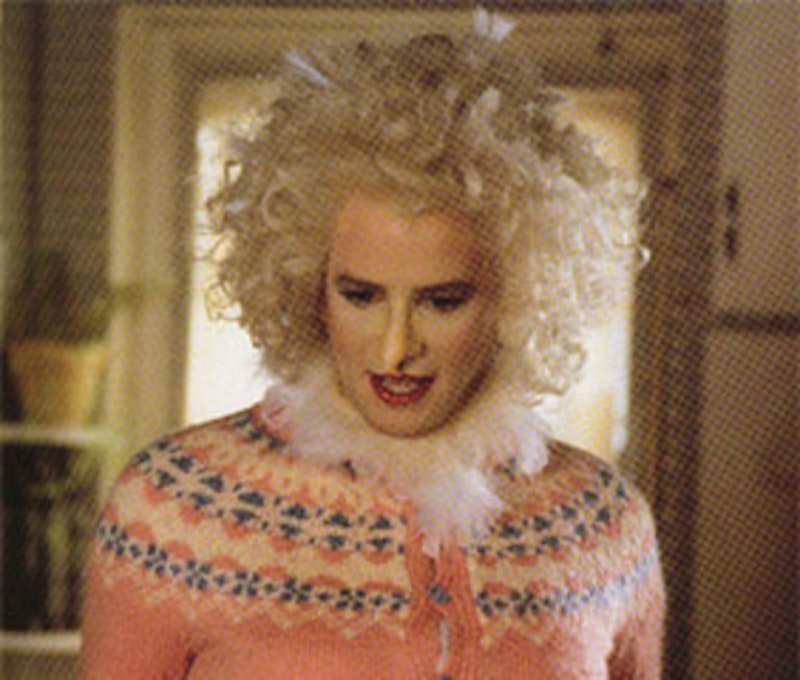You could argue that the Kids in the Hall show existed in a bubble—the Kids would have sooner performed a sketch about sausages than made fun of Brian Mulroney’s jaw. The first Canadian show to utter the word ‘fuck’ on television, they were bizarre, unscrupulous and sexually uninhibited, inspiring American and British imitators like Mr. Show and Chris Morris’s next-level Jam. Here in Canada, staid issues like equalization still provide the inspiration for many a prime-time joke.
“The Kids in the Hall was kind of a flukey show in a sense,” says Mark McKinney, the Kid behind some of the show’s most beloved characters (the Chicken Lady, the Headcrusher.) McKinney is on a smoke break from his latest show, Less than Kind, on which he’s producing, not performing. Even in a sweatshirt and shorts, he’s a living myth to me. I had talked to him years before, when I approached him outside the Labyrinth Lounge to say that his show had “played a big role in shaping my psyche.” He backed away slightly, arched an eyebrow and told me that he hoped I was healthy. “We really got— and this is unheard of —kind of a playground to do whatever kind of sketch comedy we wanted for five years. It’s sort of irreproducible,” he says.
By 1985, the troupe had begun performing weekly shows at the Rivoli, then the centre of the Queen West art scene. At the time, the notion of an alternative comedy scene was vague at best. A connection with the band Shadowy Men On A Shadowy Planet, old friends of McCulloch’s, made the Kids honorary members of the city’s alternative music community. “We did shows where Scott [Thompson] as Buddy Cole, long before they had a TV show, was a guest vocalist for us. Kevin McDonald did a magic show,” says Don Pyle, former drummer for Shadowy Men and a long-time veteran of the Toronto indie-rock scene. “I think for a lot of people, it was a very natural thing. Partly because the Kids in the Hall were very much acting like an independent rock band—I think they were accepted by a lot of people within the music scene.”
“The Kids fought to stay in Toronto,” Bellini says. “The stardom never got to you, because there were no limos, there were no groupies, there were no parties with cocaine on the table.” Once, Thompson demanded Madonna tickets; an assistant bought them and pretended they were free. McKinney agrees that the show’s location was a blessing. “I think if we’d been in Los Angeles, by year three, somebody would have got an offer and split… I personally came out of Kids in the Hall incredibly naïve about how the business ran, and I probably paid the price. Because I just thought, well, you do whatever you want, right? And people give you money? No. I mean, that’s kind of what was unique about the show—we were allowed to stay business naïve for a long, long time.”
You might compare the Kids in the Hall to the Velvet Underground—as the old adage goes, not many bought their records, but everyone who did started a band. The Kids’ ingenuity meant that they were nowhere near as big as they could have been. But everyone who watched the show was inspired by it—from the fans riffing on its lines to the alternative comics, in Toronto and elsewhere, who have sprung up in its wake.

